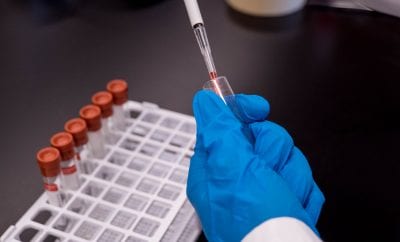News
CDC recommends boys and men receive HPV vaccination
On Tuesday it has been recommended by a federal government advisory committee that boys and young men, from ages 11 to 21, be vaccinated against HPV (human papillomavirus). Prior to this recommendation, young girls and women were the only ones who have been widely receiving the vaccination even though it had been approved for males back in 2009.
HPV is spread during sexual activity and it is very common for a person to have it and not be aware, thus making the risk of spreading it even higher. Between 75 percent and 80 percent of people in America will be infected with HPV at some point in their lives, making it the most common sexually transmitted disease (STD). HPV is responsible for nearly 15,000 cancers in women and 7,000 cancers in men. It is the main cause of cervical cancer and according to the Center for Disease Control (CDC), there is nearly 11,000 new cervical cancer cases every year in America, and almost 4,000 resulting deaths. Also causing genital warts, vaginal, vulvar, and anal cancer, there is growing evidence that in addition, HPV causes head, neck and throat cancers, resulting from the growing popularity of oral sex.
risk of spreading it even higher. Between 75 percent and 80 percent of people in America will be infected with HPV at some point in their lives, making it the most common sexually transmitted disease (STD). HPV is responsible for nearly 15,000 cancers in women and 7,000 cancers in men. It is the main cause of cervical cancer and according to the Center for Disease Control (CDC), there is nearly 11,000 new cervical cancer cases every year in America, and almost 4,000 resulting deaths. Also causing genital warts, vaginal, vulvar, and anal cancer, there is growing evidence that in addition, HPV causes head, neck and throat cancers, resulting from the growing popularity of oral sex.
The vaccine comes in three doses and is recommended for administration prior to any sexual activity, being able to start as early as age 9. One to two months should pass between the first and second dose, and the third dose should be administered six months after the second. According to the CDC, it is very important to make sure all three doses are received because there have been no studies that have shown one or two doses protecting as well as all three. There have been no serious side effects from the vaccinations, but some people will report pain in the area the shot was given, fever, dizziness, and some nausea.
There are two approved vaccinations, Gardasil and Cervarix, and both work to prevent HPV side effects in males and females. The increasing need for boys and men to be vaccinated is due to the low number of females being vaccinated. If both sexes would begin vaccinations, it would greatly reduce the number of HPV infections being spread. It will decrease HPV amongst males engaging in oral or anal sex, and also reduce the risk of women being infected since they mostly receive the virus from infected males. With it being able to prevent the most common of affliction (such as genital warts, which 1 in every 100 sexually active adults in America have had at any one time in their lives), to the prevention of the slightly less common cancers, HPV vaccines should be the easiest decision to make.




0 comments